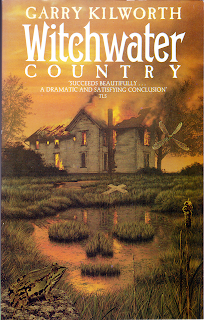In 1984, when I had not yet seen ERASERHEAD or the short films of David Lynch, I called his adaptation of DUNE a disaster. Here in 2021, I think of Lynch as my favourite living film artist, and would call DUNE at least halfway brilliant. As an interpretation of Herbert's book, it fails, but as an individualistic vision that works better than ever on Blu Ray, it could almost have been ERASERHEAD 2: A DREAM OF DARK AND TROUBLING SPACE.
Time and experience change perspective. Back then, I failed to recognize that many flaws in DUNE the movie were caused, perhaps inevitably, by the complications of DUNE the book, which is not so much an original work as a melange of previously-tested ideas in a newly-jumbled combination. Once the readers have accepted this mixture of Charles Harness, Cordwainer Smith, Middle Eastern history and Islamic culture, they often take pleasure not only in Herbert's blend, but in his trust that people will understand what he has in mind as the story unfolds.
Herbert does what he can to keep exposition to a minimum: he dumps most of his background information into his appendices, but he also relies on italicized thoughts from many different characters, along with points of view that leap from skull to skull within a scene. The result is a set of narrative techniques less than elegant on the page, and pretty much impossible to film. Lynch retains the spoken thoughts, drags exposition into full view, and ends up with moments that tell more than show -- not the best approach for a cinematic story.
Lynch is also forced to leave out chunks of the book, not only from the story itself (which often happens when books are adapted to the screen), but also, fatally, from Herbert's perspective on the rise and fall of Paul Muad'Dib. Herbert takes a dim view of political and religious heroes, a skepticism that Lynch never considers. By turning Paul into an actual messiah, Lynch not only distorts the book, he misses the point completely.
This failure back then remains a botch today: DUNE the film is not DUNE the book. It is, however, in its images, moods, and sounds, very much the creation of David Lynch. That a director-for-hire could have imposed this personal touch on a film so expensive and so theoretically impersonal would perhaps have been unexpected for anyone less confidently and stubbornly himself.
What we have, then, is a film by Lynch, but is it a good film? I would argue that it works well up until its halfway point; after Paul and his mother meet the desert Fremen, the pacing and focus fall apart as Lynch crams too much narrative within too small a running time. The lingering moods, the stately movements disappear; all that remain are scattered moments of nightmare imagery.
Yet still, for all of its abandoned promise (and despite its ridiculous rainfall ending), DUNE the film has gained clarity over time: the clarity of context within the later work of its director. Readers of the book will find much to lament; viewers of David Lynch will find much to love.





